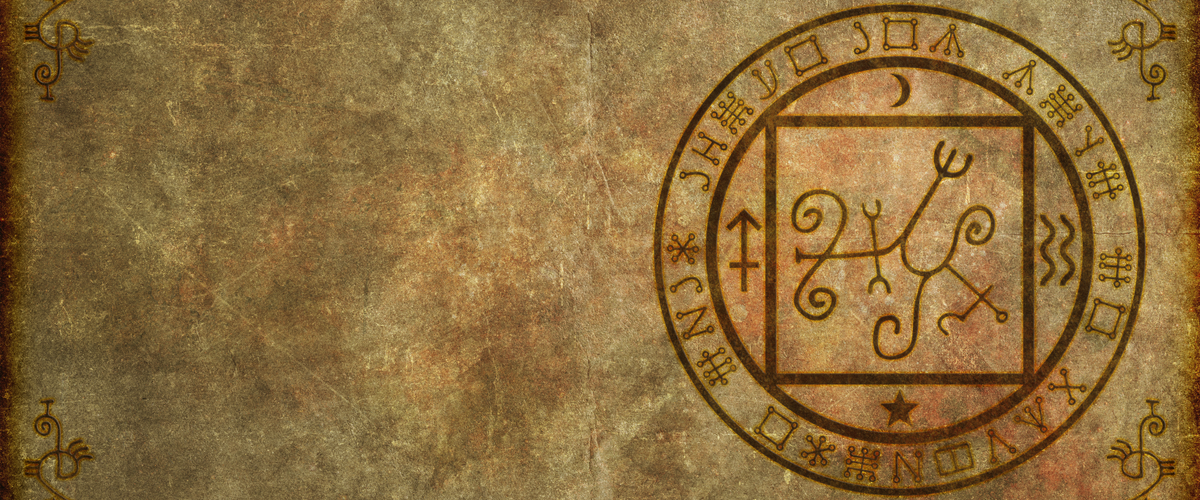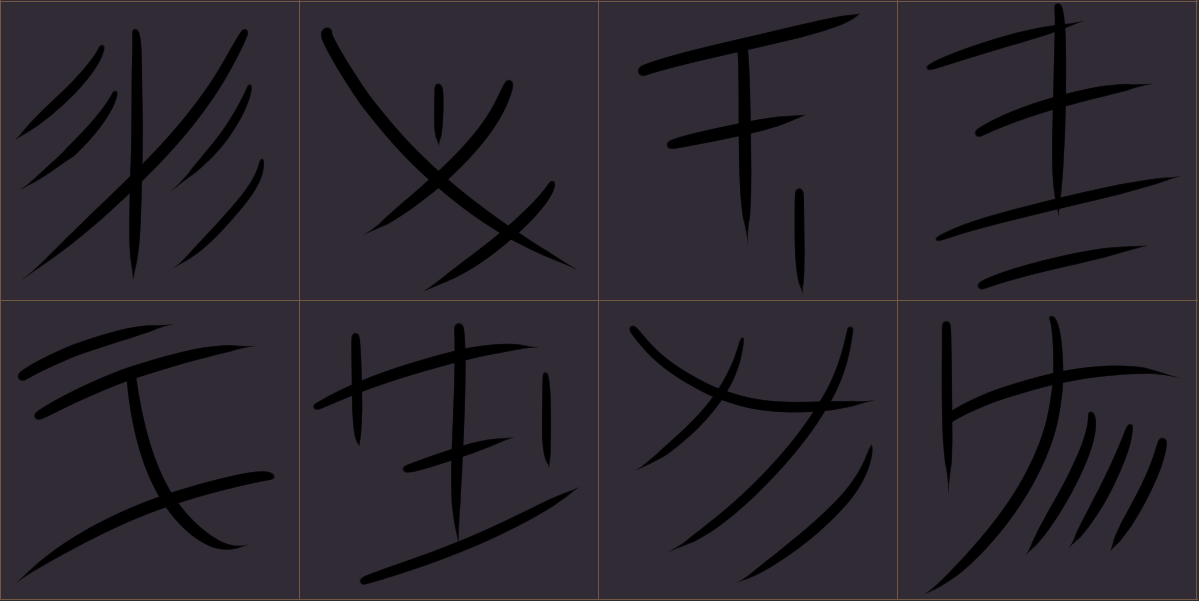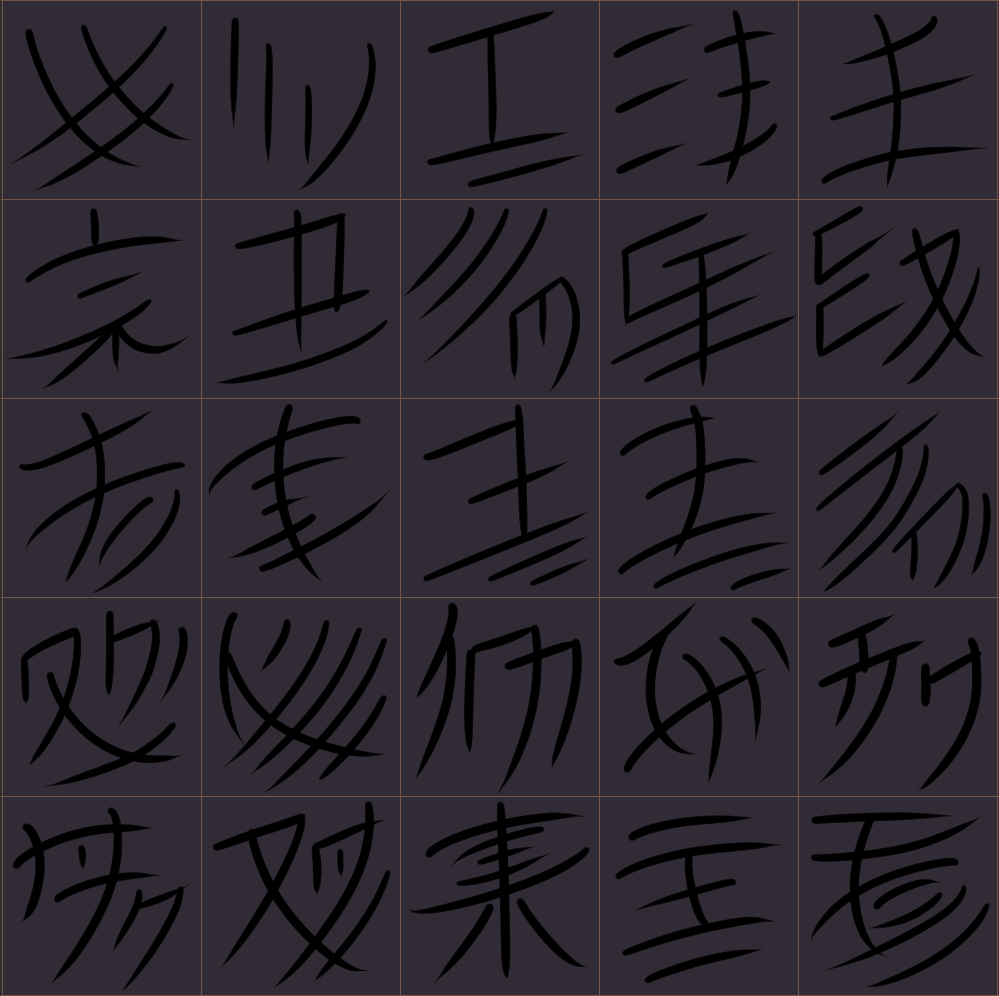In'lazankel
Kriiv'vun ev kul'niir. Oshz'niil dosh vanii'kuv ev fiil mar'uniil'kelkulniil. Varai'vun dov'nal ev sel'pak sa na'a iiv. Zan'nal'takriin kol'iish ul'kalamiir nol in'lazankel saa sa'a friimiir. Kriiv'vun shul kul'niir. Zainvur fiir lu'kiinnolz. Kol'kal fiir zatan'niir. Ain'vulniir shul azliin'kol. Ju'vunmaniir vaa niil'vraikiin. Zuv'kananiir vol danon'kel. Oshz'niil gel'vakriin dosh bel'ziin iiv. Iin'vurnu dosh levii'dinvii ziiv kuvun.
—Elder Demon Proverb
In'lazankel is and was the language used by the Elder Demons in Infernus. Derived from In'lazan'kel Sa'kul'niir, the language of the Ancient Demons, it is a complex and powerful language to comprehend, yet for those willing to learn it, are able to unlock many tales and secrets of the Realm. Speakers of In'lazankel are almost entirely Elder Demons and the rare linguist or historian knowing it as well. This is largely due to the complex writing system as well the language being outdated and superseded by its child language Yolniir Inlazankel (Modern Demon Langauge). The language first came about following the Infernus Civil War, when the surviving demons wanted nothing to do with the Ancients nor their designs. At the same time, a general consensus was that In'lazan'kel Sa'kul'niir was far too of a coded language even for demons, more than half the population unable to read or write it. The idea to simplify the coded language was proposed by Elder Demon Iin'vrai'kulniil Lu'kiinolz; his idea was to take the old system of writing, which in his words "are no more than primal scratch marks by claws," and combine said scratch marks to create unique characters. Another revision to the old language was the addition of grammatical structure. In'lazankel uses a combination of logographic characters (kiinvak), which are characters derived from In'lazan'kel Sa'kul'niir, and syllabic characters (volaavak). Kiinvak, meaning character words, are the primary characters found in the language. These characters are often complex, having up to three pronunciations or meanings depending on context or intent. Kiinvak generally has more than two vowels and/or are two or more words conjoined. It's estimated that there are around 1.2 million kiinvak, and during the Elder Rule, it was common for a demon to know at least half the language's available words. However, it's estimated that only 80,000 are needed to be considered fluent. Volaavak, meaning sounding characters, are a seperate set of unique characters that act as a syllabary. The volaavak syllabary contains [insert # of characters here], each character only representing a single sound. These characters are primarily used for grammatical particles or basic words (words containing only a single vowel as well as numbers). Each volaavak character can also be attached to a kiinvak to form ganiivak, combinatory words. Ganiivak, are separate forms of characters in the sense that they are kiinvak, but directly modified by the volaavak within it e.g the volaavak character in the ganiivak Zain'lazankel: the volaavak zain, meaning four, modifying the kiinvak lazankel (demon) to change its singular form to plural. In other words, demon literally becomes four demon. In'lazankel has no plural form in the English sense, thus nouns are made plural via volaavak or through context. Unlike kiinvak, knowledge of every volaavak is essential to understanding In'lazankel. When written, In'lazankel makes heavy use of both its writing systems: most, if not all sentences contain both kiinvak and volaavak. Rarely found, and typically for beginners, are sentences comprised solely of volaavak for the purpose of learning the sounds and flow of the language. In'lazankel is written and read from top to bottom in a left to right fashion and is written without any spaces between characters.





I'm impressed with the amount of effort you put. You are amazing.
Wow, thanks! Really glad you liked it.